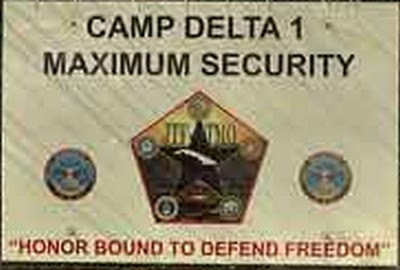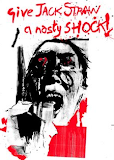Judge Leon releases 5 Algerian "rendered" prisoners from Guantanamo military prison - they haven't been released.

It appears that prisoners started to be "rendered" to Guantanamo Bay on January 11th 2002 - amonst the first were Boumediene Lakhdar, Sabar Lahmar, Mustaf Ait Idir, Bourdella Haj, Bensayah Belkacem and Mohammed Nechle ( "Ghost Plane" by Stephen Gray Page 249)all were born in Algeria but , blindfolded, drugged, handcuffed and shackled and spirited from Bosnian prison cells to a military prison outside sovereign U. S. territory.
Although the United States has maintained complete and uninterrupted control of Guantanamo for over 100 years, the US Government’s view is that the Constitution has no effect there, at least as to noncitizens, because the United States disclaimed formal sovereignty in its 1903 lease with Cuba.
All the prisoners had all been fingered by the US Embassy as having been involved in plotting an attack on the US Embassy. They were initially arrested on grounds that they were plotting to blow up the United States embassy in Sarajevo, but the US government later abandoned that claim and said the men planned to fight with Al Qaeda.
Arrested in October shortly after 9/11 the 6 had appeared in January before Bosnia's highest court who had issued 2 clear rulings, one ordering the immediate release of the prisoners due to lack of evidence and the other preventing the men from being deported.
Their arrest had followd a curious sequence of events which has taken time untangling but reveals the Kafkaesque / strong arm tactics the US resorted to their client sate. Bosnian police discovered that one of those arrested , Saber Lahmar, lived at the same address as his father-in-law, who was a janitor in the U.S. embassy.
On October 16, U.S. intelligence reportedly tapped a conversation on Lahmar's phone, which included a "coded reference" to a forthcoming attack on the U.S. and British embassies in Sarajevo. The following day both missions closed, and a tense meeting between American and Bosnian officials took place.
During that meeting, Christopher Hoh, the U.S. chargé d'affaires, reportedly told the Bosnian Federation's Prime Minister, Alija Behmen, that the U.S. would withdraw its personnel and cut diplomatic relations with his country if they did not arrest Lahmar and other suspected members of his cell. "If we leave Bosnia, God save your country, Mr. Prime Minister," Hoh said, according to filings by the detainee's American lawyers. Testimony to this effect has also been presented by the Bosnian Prime Minister, Alija Behman . It has also been confirmed by the international High Representative to Bosnia at the time, Wolfgang Petritsch. (A State Department lawyer, Vijay Padmanabhan, confirmed the encounter but stressed that U.S. officials had issued no threat and had merely passed along intelligence information about the embassy plot.)
A crowd of more than 150 excited and jubilant supporters had gathered outside Sarajevo's central jail awaiting the release of six prisoners. After a squad of Bosnian special police forces arrived on the scene intending to hand the men over to the U.S. military, the peaceful gathering quickly turned into a violent confrontation. Riot police intervened and a convoy eventually managed to whisk the prisoners away. What the crowd didn't know was that whilst the Bosnian court was preparing to release their six prisoners, Prime Minister Behman was informed that Mr Bush, Vice-President Richard Cheney and the Defence Secretary, Donald Rumsfeld, had been personally briefed and the White House had decided that, if they were freed, US troops in the Nato Stabilisation Force in Bosnia would seize them, using "whatever force is necessary".
What the crowd didn't know was that whilst the Bosnian court was preparing to release their six prisoners, Prime Minister Behman was informed that Mr Bush, Vice-President Richard Cheney and the Defence Secretary, Donald Rumsfeld, had been personally briefed and the White House had decided that, if they were freed, US troops in the Nato Stabilisation Force in Bosnia would seize them, using "whatever force is necessary".
It is worth noting that in President Bush's 2002 State of the Union address – he said that "our soldiers, working with the Bosnian government, seized terrorists who were plotting to bomb our embassy in (in Sarajevo)."
Boumedienne v Bush
The history of the 6 is lengthy and involves many legals twists and turns ...perhaps the most significant was see Wiki Boumedienne v Bush and Cornell University for the details and significance of a writ for habeas corpus (Consolidated with Al Odah v. United States ).
Briefly this directly challenged the legality of Boumediene’s detention at the Guantanamo Bay military base as well as the constitutionality of the Military Commissions Act (MCA) of 2006. Oral arguments on the combined case were heard by the Supreme Court on December 5, 2007. On June 12, 2008, Justice Kennedy wrote the opinion for the 5-4 majority holding that the prisoners had a right to the habeas corpus under the United States Constitution and that the MCA was an unconstitutional suspension of that right.
Judge Leon rules on Boumedienne and others 20th November 2008
After a hearing started on 6th November , in a written opinion on Friday , Judge Leon, a Republican appointee ruled there is insufficient evidence to warrant detention of five detainees, but sufficient evidence to hold one detainee linked both to al Qaeda and to (unrealized) plans to fight in Afghanistan. He had earlier in when the 6 men applied for a court hearing in 2004, rejected their request before the Supreme Court reversed his decision (see above).
There were 2 parts to his ruling, (based on evidence presented in a closed court) seen by some as a watershed in handling the cases of the remaining Gunatanamo detainees / prisoners.
1. To support the claim that the men planned to go to Afghanistan to fight, the government appears to have relied on a single document citing an unnamed source ( "a classified document from an unnamed source," ). Judge Leon described the document as tending to show at least something about each detainee's knowledge of and desire to participate in such a plan, but concluded that the government had not provided sufficient information about this source to establish his/her credibility. As there was no corroborating evidence, Judge Leon concluded that the government had failed to satisfy the preponderance standard as to the Afghanistan argument.
2. The Government said Belkacem Bensayah – was an al Qaeda member who served a "facilitator" function (i.e., that he recruited fighters and assisted their transit to Afghanistan).
Here, the government relied not just on the above-mentioned document, but other intelligence reports "based on a variety of sources and evidence" which corroborated this claim. Judge Leon explained that the government's evidence (i) linked Bensayah to al Qaeda in general and a senior al Qaeda facilitator in particular; (ii) established Bensayah's capacity to travel internationally on false passports in multiple names; and (iii) tended to discredit Bensayah's attempt to explain away the government's allegations. This is said to relate top a piece of paper involved the alleged discovery of a piece of paper at his home, bearing a telephone number for an al-Qa'ida operative, Abu Zubayder. "The Bosnian police couldn't get this number to work in Afghanistan or Pakistan," one of the prisoners' lawyers, Stephen Oleskey,
Nobody has been released (the 6 have remained in Cuba all this time) and according to Bloomberg Justice Department spokesman Peter Carr said in a statement the DOJ was pleased that Bensayah can continue to be held and that it is reviewing the decision regarding the other five men.
Elswhere it is reported that White House Spokesman Mr. Tony Fratto said, “Washington is not satisfied with the court’s decision,” . He further expressed his wish that the court would reconsider the decision related to the release of the 5 Algerians.
Meanwhile Boumedienne is said by his lawyer Stephen Oleskey to be suffering badly from his detention after going on a hunger strike. He is being force-fed by a tube inserted into his stomach through his nose.
"Twice a day he is strapped onto a chair at seven points," said Oleskey.
"One side of his nose is broken, so they put it (the tube) in the other side ... Sometimes it goes to his lung instead of his stomach. He can’t say anything because he has the mask on: that’s torture," Oleskey said.
Despite suffering from numerous ailments, Belkacem Bensayeh is refusing medical treatment at Guantánamo as he does not trust the staff or the facilities. He is currently held in Camp 6, where he spends at least 22 hours a day in a solid steel cell with no natural light.
It is reported that a US interrogator said to him .."I am going back to my wife and children, and you are going back to your cell like a dog.” (Cage prisoners)

No comments:
Post a Comment